10 Surprising Facts About Being an Authorized Inspector: The High-Stakes World of Ensuring Airworthiness
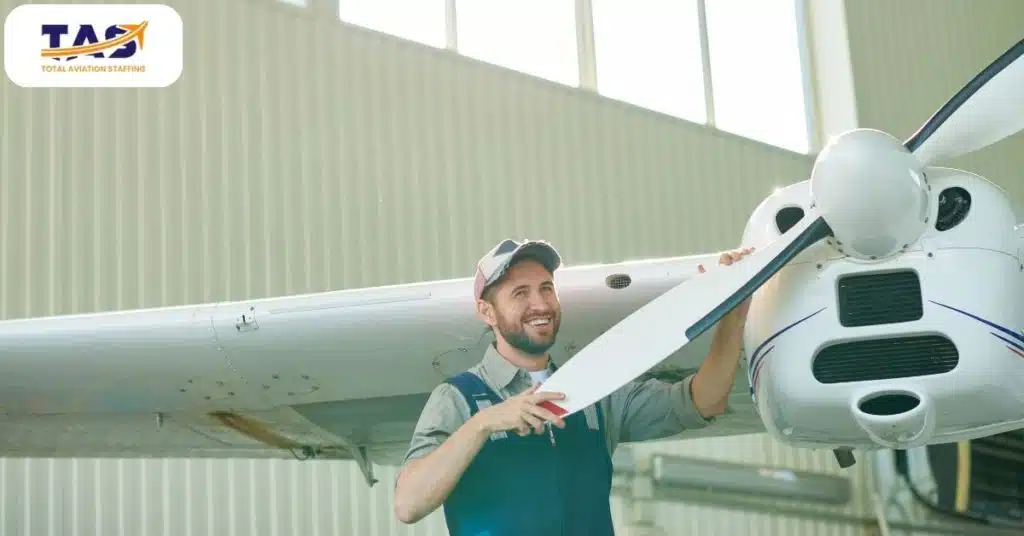
Are you curious about the life of an Authorized Inspector? Have you ever wondered what it takes to ensure airworthiness in this high-stakes world? If so, you’re in for a treat. This blog will uncover 10 surprising facts about being an Authorized Inspector – from their daily duties and responsibilities to the unique skills required to succeed in such an important role. Read on to discover some of the unique challenges and opportunities available to those who choose to become an Authorized Inspector – a job that may prove more rewarding than you’d expect!
The Rigorous Training and Testing Needed to Become an Authorized Inspector
Becoming an authorized inspector is no easy feat. Authorized inspectors are tasked with ensuring aircraft airworthiness and must go through rigorous training and testing in order to become certified. It’s a highly specialized job that requires attention to detail, knowledge of aviation regulations, and the ability to make quick decisions based on safety protocols.
One of the most important things for potential authorized inspectors is having a solid understanding of all relevant Federal Aviation Administration (FAA) regulations related to aircraft maintenance, repair, overhauls, and modifications as well as inspection processes for both civil and military aviation operations. This means applicants must demonstrate their expertise in these areas by passing written exams administered by FAA-approved organizations or educational institutions offering courses specific to this field. Once they have passed their tests, they can then apply for certification from the FAA’s Air Agency Certification Service (AACS). Applicants also need practical experience working with aircraft before they can be considered for authorization as an inspector.
The FAA requires at least 18 months of documented work experience related directly or indirectly to civil aviation operations within the last three years before applying, and two of those 18 months must be served in a direct role providing guidance to other workers, such as supervising employees or managing projects. The FAA also stipulates that authorized inspectors have at least one year of experience directly related to the type of aircraft they will be inspecting. This experience must include hands-on work with the type of aircraft that they’ll be inspecting and demonstrating a working knowledge of the maintenance, repair, and overhaul process as well as any safety protocols they will need to use in their inspection role.

The Importance of Having a Keen Eye for Detail When Inspecting Aircraft
Authorized inspectors must have a keen eye for detail when it comes to aircraft inspections. They are responsible for ensuring that all aircraft airworthiness requirements as set forth by the FAA are met and ensuring that any modifications made to an aircraft meet the same standards. This means they need to be able to spot even minor discrepancies in order to determine if an aircraft is airworthy or not.
It’s important for an inspector to have a thorough understanding of the aircraft they are inspecting, including the aircraft’s design and how it operates, its systems, components, and functions. Inspectors must also be able to identify potential problems and recognize any warning signs that could lead to failure or malfunction. Knowing the safety protocols of specific aircraft models is also important, as inspectors need to be able to detect potential hazards and ensure that they are addressed.
In order to ensure their work is up to the highest standards, inspectors must stay current on all relevant FAA regulations and industry news. They must also continually update their skillset and knowledge of aircraft and aviation operations as more advanced aircraft models become available. Paying close attention to detail is critical for inspectors, as it can help them spot potential issues before they become serious problems. By having a keen eye for detail, authorized inspectors can ensure that aircraft are airworthy and safe for operation.
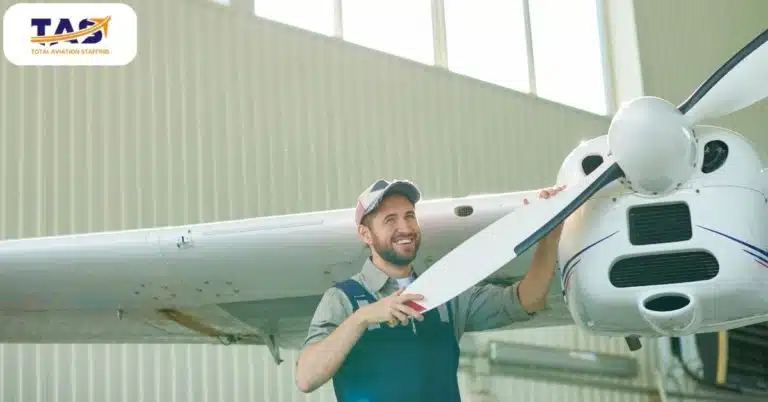
The Wide Range of Responsibilities That Come With Being an Authorized Inspector, Such as Assessing the Airworthiness of an Aircraft Before It Is Allowed to Fly
As an Authorized Inspector, one has a wide range of responsibilities to ensure the safety and airworthiness of aircraft. This includes assessing the airworthiness of an aircraft before it is allowed to fly, and there are many duties that come with this role. Here are five of them:
Ensuring compliance with all applicable FAA regulations and industry standards
Inspecting aircraft fuselages, wings, engines, and other components
Verifying that all systems are properly functioning during pre-flight checks
Performing preventive maintenance as needed to maintain the airworthiness of aircraft
Ensuring that appropriate safety protocols are followed when performing inspections and repairs.
By taking on these responsibilities, an Authorized Inspector plays a vital role in ensuring the airworthiness of aircraft for passengers, crew members, and other personnel. They are an integral part of the aviation industry, as they provide a level of safety that is unmatched by any other profession. With their keen eye for detail and knowledge of FAA regulations and industry standards, they help ensure that all aircraft are airworthy before they are allowed to fly.
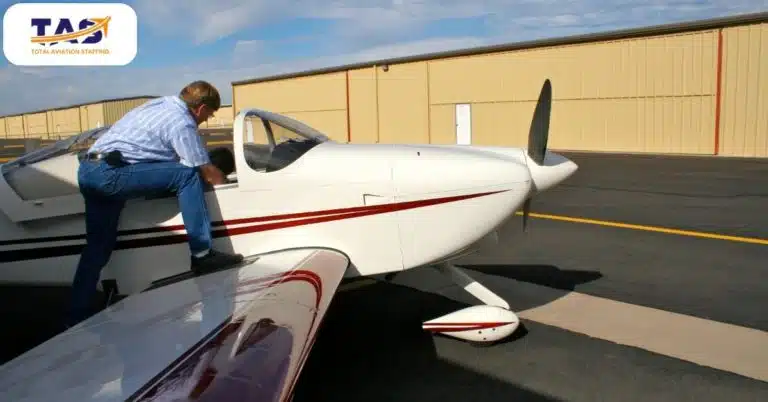
How the Safety of Passengers Relies Heavily on the Work Done by Authorized Inspectors
The safety of passengers when they fly is heavily reliant on the work done by authorized inspectors. Every single aircraft that takes off must first be inspected and declared airworthy by an approved inspector in order to ensure it meets all legal requirements. Inspectors are responsible for checking every aspect of a plane, from its fuselage and wings to its engines and other components, to ensure that it is safe and reliable for use. They must also be able to spot any potential signs of trouble or malfunction before they become serious issues.
In addition to inspecting the aircraft, authorized inspectors also need to assess its operational readiness. This means ensuring that all internal systems are working correctly and any modifications made meet FAA standards. By doing so, they help to ensure that the aircraft is safe for use and can perform as expected. Without these inspections from authorized personnel, passengers would be in danger of being injured or worse if an accident were to occur.
In short, the safety of every passenger who boards a plane relies on the skills and expertise of Authorized Inspectors. It is their job to ensure that all aircraft are airworthy and can meet the highest standards of safety before they take off. Without them, there would be no guarantee that passengers are safe when they fly. For this reason, it is important to make sure that only qualified personnel are performing these inspections and assessments in order to keep everyone safe while flying.
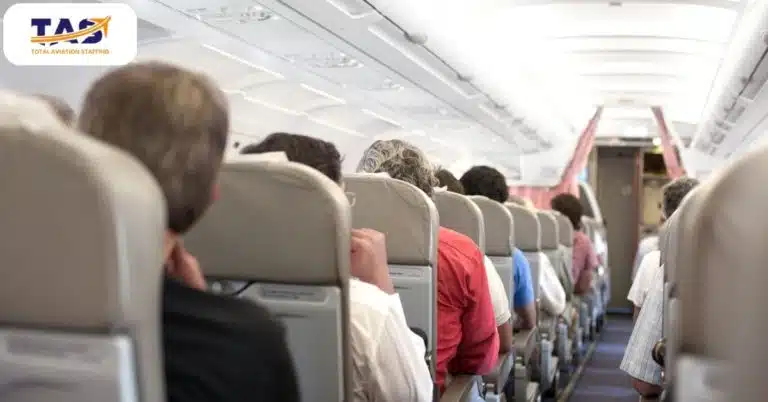
How Important Communication Skills Are in Order to Effectively Communicate With Other Professionals Involved in Ensuring Airworthiness
Communication skills are essential for Authorized Inspectors when it comes to effectively communicating with other professionals involved in ensuring airworthiness. As an approved inspector, one needs to be able to clearly explain their findings and any necessary actions that need to be taken in order to ensure the safety of the aircraft and its passengers. This means being able to effectively communicate with other professionals such as pilots, engineers, and maintenance personnel in order to ensure that everyone is on the same page.
In addition to communicating with other individuals directly involved in the inspection process, Authorized Inspectors also need to be able to communicate their findings effectively with government regulators. This often requires providing detailed reports and being able to effectively explain the results of the inspection. In some cases, these reports may need to be presented in a court of law if an accident were to occur. Without strong communication skills, Authorized Inspectors may not be able to adequately explain the situation and present their findings in a clear manner.
Communication is also important when it comes to providing customer service. As an approved inspector, one needs to be able to explain the inspection process and answer any questions that passengers or other stakeholders may have about the safety of their flight. By having strong communication skills, Authorized Inspectors are better equipped to ensure that everyone involved in the inspection process is kept informed and comfortable with the level of safety being provided.
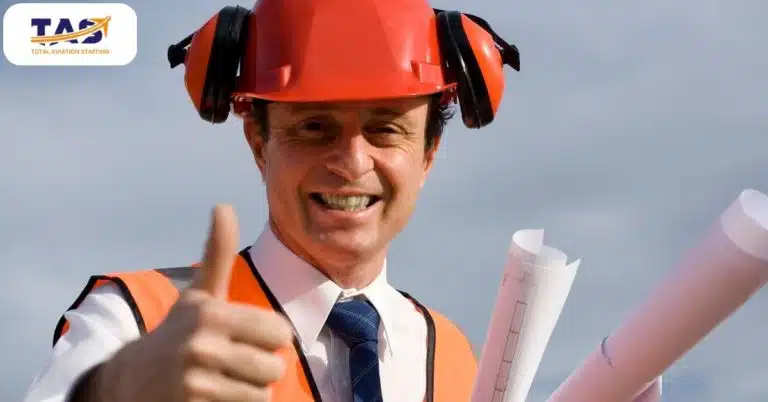
What Type of Qualifications and Certifications Are Required to Become an Authorized Inspector
In order to become an Authorized Inspector, there are a number of qualifications and certifications that must be met. These qualifications and certifications ensure that the inspector has the skills and knowledge necessary to effectively inspect aircraft in accordance with FAA standards. Here are 5 qualifications and certifications required for becoming an Authorized Inspector:
Valid FAA Airframe and/or Powerplant (A&P) certification
Certified Quality Assurance Representative (QAR)
Aviation Maintenance Inspector Certificate (AMIC)
IA Certification from the FAA
A minimum of 5 years experience in aviation maintenance or quality assurance.
In addition to the above qualifications, Authorized Inspectors must also pass a written exam administered by the FAA in order to obtain their certification. This exam covers a range of subjects related to aircraft inspections and quality assurance procedures. Once an individual has passed this test, they are then eligible for a job as an Authorized Inspector.

How Regular Maintenance Checks Help Ensure Airworthiness and Passenger Safety
Regular maintenance checks are essential for ensuring airworthiness and passenger safety. By conducting regular inspections, aircraft owners and operators can identify any issues with the aircraft that could lead to an accident. This includes checking all components of the aircraft such as its engine, wings, and landing gear to ensure they are working properly and in a safe condition. Routine maintenance checks can detect signs of wear and tear that may have gone unnoticed during previous inspections.
Regular maintenance checks also help keep passengers safe by ensuring the aircraft is in top condition before each flight. By conducting regular inspections, technicians are able to identify any potential issues with the aircraft before it takes off. This helps reduce the risk of a mechanical failure or another incident that could lead to an accident. By regularly inspecting the aircraft, passengers can have more confidence in its airworthiness and rest assured knowing their flight is as safe as possible.
Finally, regular maintenance checks are also important for keeping aircraft up-to-date with any changes in regulations or technology. This helps ensure the aircraft is always operating with the latest safety requirements and best practices. By conducting regular maintenance checks, operators can ensure their fleet of aircraft is always up-to-date and equipped to handle any potential risks that could affect passenger safety.

Understanding How Changes in Technology Have Impacted the Job Duties Related to Being an Authorized Inspector
The job duties related to being an Authorized Inspector have been significantly impacted by the changing landscape of technology over the last few decades. The rise in technological advancements has created a need for Authorized Inspectors to become more adept in their understanding and application of new technologies. As such, inspectors must be well-versed in the latest methods and strategies of aircraft inspections, as well as the newest regulations and best practices.
One of the biggest changes in technology that has impacted the job duties of Authorized Inspectors is digitalization. In the past, inspectors used paper-based record systems for tracking their inspection activities and required extensive manual effort to keep records up-to-date and accurate. However, with the introduction of digital record-keeping systems, inspectors now have more efficient and accurate ways of tracking their activities. Additionally, as digital technologies become more prevalent in aircraft inspections, Authorized Inspectors must be knowledgeable in digital data collection methods and analysis tools to ensure that all aspects of an aircraft’s maintenance are compliant with the latest regulations.
The introduction of artificial intelligence (AI) has had an immense impact on the job duties of Authorized Inspectors. AI-driven technologies have enabled more accurate and efficient inspections that can identify potential safety issues with aircraft components much faster than traditional methods. By integrating these new AI-based systems into their workflow, inspectors can enhance the safety and accuracy of their inspections, as well as better ensure that all aircraft components comply with the latest regulations. As AI-driven technologies become even more advanced in the years to come, Authorized Inspectors will need to stay up-to-date on these advancements and embrace them in order to best serve their clients.
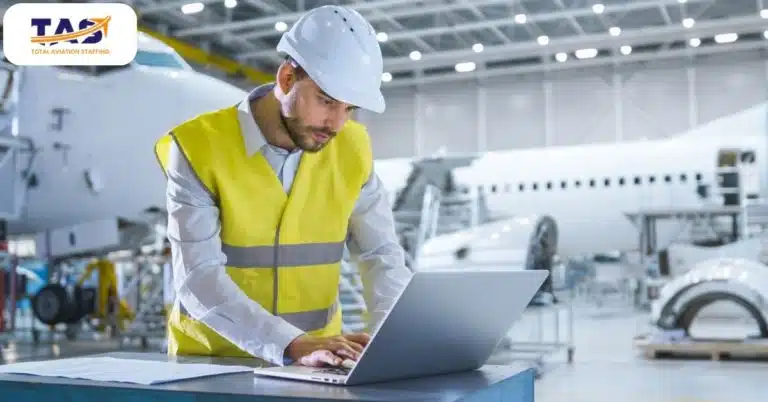
Knowing What Specific Regulations Must Be Followed When Conducting Inspections
When conducting inspections as an Authorized Inspector, there are several regulations and guidelines that must be followed in order to ensure the safety of passengers and crew. These regulations include:
International Civil Aviation Organization (ICAO) standards: The ICAO sets international standards for aircraft maintenance, safety, and operations. Inspectors must adhere to ICAO standards when conducting inspections to ensure the aircraft meets safety requirements.
Federal Aviation Administration (FAA) regulations: The FAA sets detailed regulations that must be followed for all aircraft operating within the United States. Inspectors must be familiar with these regulations and ensure that any aircraft under their purview is compliant with them.
Aircraft manufacturer regulations: Each aircraft manufacturer has its own set of guidelines and regulations that must be followed when conducting inspections. As such, inspectors must ensure they are familiar with the specific guidelines of each aircraft type they inspect in order to guarantee the safety of any passengers and crew members.
Industry best practices: In addition to specific regulations, inspectors must also be informed of the best practices used in the aviation industry. Understanding these best practices will enable inspectors to thoroughly and accurately inspect an aircraft, as well as provide guidance and advice when needed.
Personal experience: As Authorized Inspectors gain experience with different aircraft types, they become more knowledgeable about the specific requirements for each aircraft. This personal experience is invaluable in providing a thorough and accurate inspection of any aircraft under an inspector’s purview.
It is important for Authorized Inspectors to familiarize themselves with the various regulations and guidelines that must be followed when conducting inspections. By doing so, they can ensure that any aircraft they inspect meets the relevant safety standards and regulations, as well as provide guidance and advice to others when necessary.
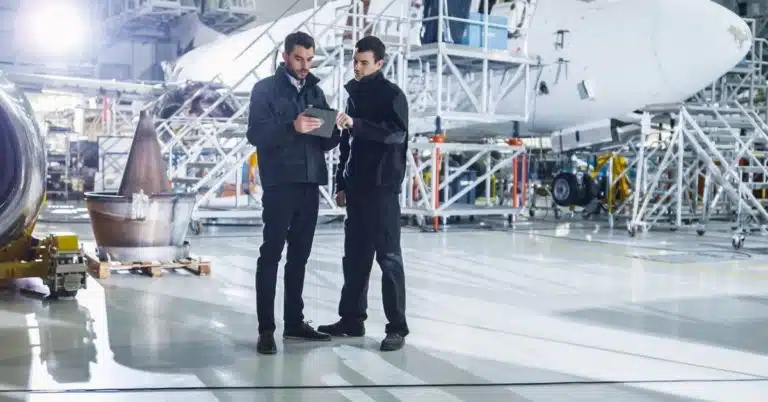
Exploring How Advances in Aviation Technology Can Make the Job Easier or More Challenging for Inspectors
Over the last few decades, advances in aviation technology have had a major impact on the job of Authorized Inspectors. On one hand, these technologies have made the task of inspecting aircraft easier and more efficient by providing more accurate data quickly and reliably. For instance, AI-driven systems can detect potential issues with aircraft components that may otherwise be overlooked by human inspectors. In addition, 3D printing and other advanced manufacturing techniques have allowed for more rapid prototyping and production of aircraft components, making the job of an inspector much simpler in some ways.
On the other hand, advances in technology can also make the job of an Authorized Inspector more challenging. As new technologies are developed and implemented, inspectors must stay up to date with the latest standards and regulations. This can require additional training and education in order to remain compliant with the ever-changing aviation rules and regulations. In addition, new technologies may create unforeseen challenges for inspectors as they attempt to assess the safety of aircraft that employ increasingly complex technology.
Advances in aviation technology have the potential to make the job of an Authorized Inspector easier and more efficient, but also introduce new challenges that must be overcome in order to ensure the safety of aircraft flying throughout the world. With these advancements rapidly changing the landscape of aviation, it is important for inspectors to remain knowledgeable about the latest rules and regulations, as well as stay abreast of new technologies related to aircraft. By doing so, inspectors can ensure that any aircraft under their purview continues to comply with safety standards.

In Conclusion
Authorized Inspectors are responsible for ensuring the safety of aircraft flying throughout the world. To do so, they must stay up-to-date with both industry regulations and best practices as well as any advancements in aviation technology. By familiarizing themselves with these requirements, inspectors can guarantee that all aircraft under their purview meet all relevant safety standards and regulations. With the help of Authorized Inspectors, we can ensure that aircraft are safe and reliable for passengers around the world.
Are you ready to take your aviation career to new heights? Total Aviation Staffing is here to help. With our dedicated team of experienced recruiters and our expansive network of employers in the MRO, OEM, airline, aerospace, and charter sectors, we can help you find the perfect job for you. From A&P mechanics and aircraft technicians to flight attendants and customer service professionals, we can help extend your job search and get you closer to landing your dream full-time job. So don’t wait any longer – take the first step towards a successful career in aviation today by visiting our website and submitting an application! With Total Aviation Staffing’s help, you’ll be flying high in no time!
